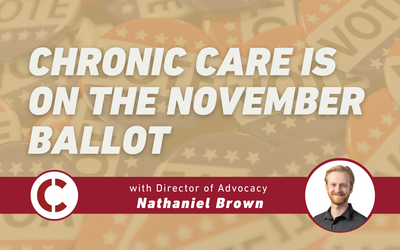
If you’ve been looking for a way to make your voice heard and advocate directly for patient-centered policy, now is the time. The midterm elections are scheduled for Nov. 8, 2022 – and states with mail-in voting are already seeing ballots delivered in mailboxes.
Back in May, after many states had held their primary elections, I wrote about how chronic disease knows no political party—and as the election season has played out around the country that assertion has held up. Candidates from all sides of the aisle are discussing health care, and ways to improve access, control costs, and improve outcomes.
Common ground is possible. We’ve seen this proven many times over this year, whether it’s bipartisan legislation on step therapy reform, Medigap expansion, copay accumulator bans, or living donor protections. So before you cast your vote this year, make sure that the person you’re supporting is a friend of the chronic disease community by asking yourself these questions:
- Does your candidate support reforms to step therapy and prior authorization practices? We need legislators at the state and federal level that will protect the relationship between patient and provider.
- Does your candidate support Medigap expansion? Chronic disease patients of all ages must have guaranteed access to this lifesaving coverage, yet many states don’t require insurers to sell it to those under 65.
- Does your candidate support maintaining telehealth services? If there’s been one silver lining from the global pandemic, it’s that telehealth has increased access to care for immunocompromised and mobility-challenged patients. This needs to be permanent.
- Does your candidate support protections for charitable premium assistance and banning copay accumulator programs? Patients should never have to pay twice for the same treatment, while insurers pocket the third-party assistance.
Above all, you need to ask yourself: Does your candidate respect the patient perspective? Beyond health care, does your candidate view other issues – climate change, transportation, tax structures, you name it – through the lens of a patient?
Health care policy is incredibly complex, and as we work to deconstruct various problems and look for solutions, there’s no silver bullet. But we must take the lead of patients when crafting policy responses to issues prevalent in the chronic disease community.
When state legislators, congressional representatives, governors, and other new elected officials take their oaths in January 2023, one thing is certain: major changes are coming. At the Chronic Disease Coalition, we’ll make sure that all elected officials, whether they are elected next month or have been in office for decades, are advocates for chronic care.